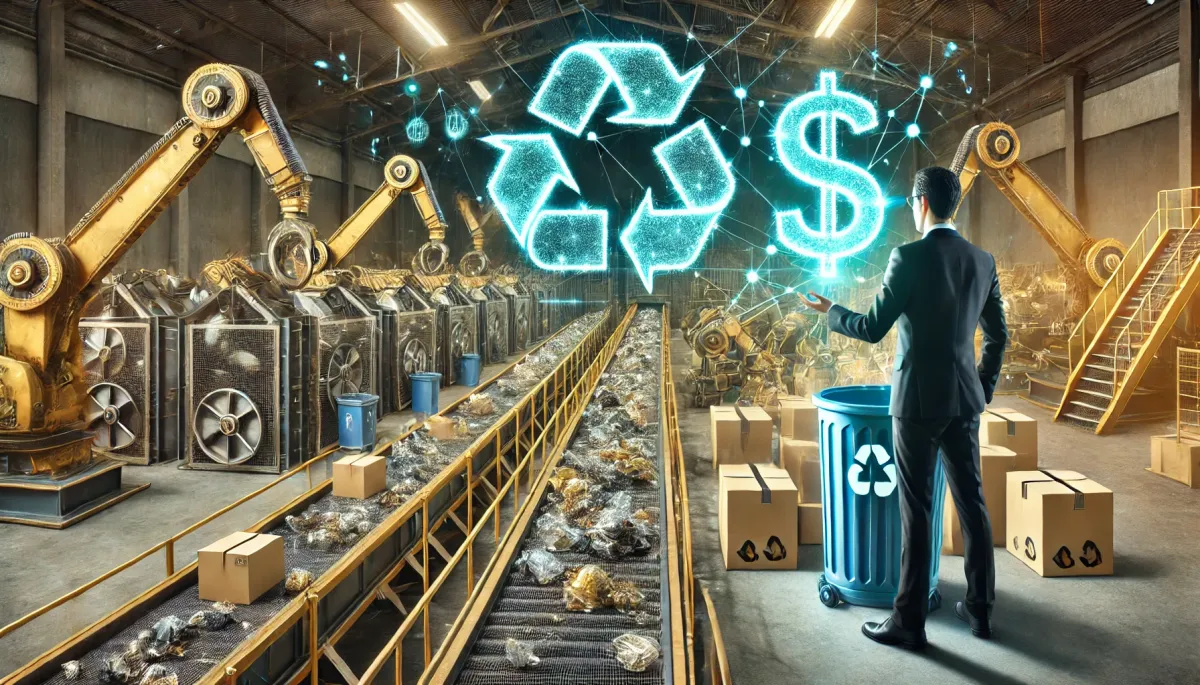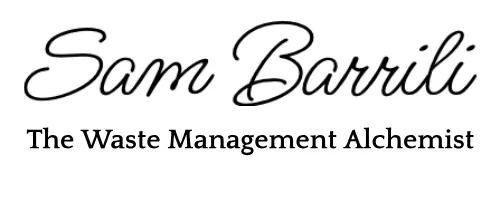Articles

How Waste Companies Can Unlock Billions by Applying Proven Global Recycling Strategies
There’s a gold rush happening in the waste industry—but most waste company owners are too blind to see it.
While too many U.S. businesses are fighting over shrinking landfill space and dealing with rising disposal costs, other countries have figured out how to turn trash into a high-profit operation.
Germany, Switzerland, Norway, South Korea—these countries have built systems that extract maximum value from waste, feeding entire industries with secondary raw materials. Meanwhile, most U.S. waste companies are stuck in a broken model, sending millions of dollars in recoverable materials straight to the landfill.
Here’s the harsh truth: The old way of waste management is dead. The companies that will thrive in the next decade are the ones that adapt, copy what works globally, and build revenue streams from materials others are throwing away.
So let’s cut to the chase. What’s working overseas, and how can YOU apply it to grow your business?
[Download the eBook Thriving With Waste]
1. The “Norwegian Method” for Turning Every Bottle into Cash (Deposit Return Schemes)
Reality check: Right now, over 70% of plastic bottles in the U.S. never get recycled. Instead, they clog landfills, pollute cities, or—worse—get sent overseas.
Meanwhile, Norway is making a killing with a 98% recovery rate. How? They pay people to bring back their bottles.
How to Apply This to Your Business
Step 1: Push for Deposit Return Schemes (DRS) in Your State. You don’t need to wait for a federal mandate. Lobby local decision-makers to set up a bottle return system.
Step 2: Set up automated return stations. Reverse vending machines allow customers to return bottles and get cash immediately. These machines are cheap to install and create a constant flow of high-value materials.
Step 3: Own the Processing. The real money isn’t in collection—it’s in turning returned materials into high-quality secondary raw materials for manufacturers.
✅ Profit Potential: Plastics and aluminum become reliable revenue streams, reducing your dependence on landfill contracts.
[Download the eBook Thriving With Waste]
2. The “Swiss Trick” to Charging Customers More While They Thank You for It (Pay-As-You-Throw)
Here’s what smart waste companies know: People waste less when they have to pay for it.
In Switzerland, households pay for every bag of trash they throw away—but they can recycle for FREE. The result? They produce less waste, and waste companies earn more per ton.
How to Apply This to Your Business
Step 1: Stop offering flat-rate disposal services. Instead, charge per bag or per pound.
Step 2: Offer free recycling pickup. If you control both disposal and recycling, this model drives more materials to your processing business, increasing profitability.
Step 3: Sell this as a premium service. Customers don’t see this as a punishment—they see it as an exclusive way to reduce costs.
✅ Profit Potential: Higher margins per ton and a steady stream of recyclable materials you can monetize.
[Download the eBook Thriving With Waste]
3. The “German Playbook” for Making Manufacturers Pay YOU for Their Own Trash (Extended Producer Responsibility)
Germany forces manufacturers to pay for the waste their products create. The result? Recycling isn’t an expense for waste companies—it’s a revenue source.
How to Apply This to Your Business
Step 1: Start direct talks with manufacturers in your region. Offer them a “waste buy-back” program where they pay you to handle their discarded packaging and materials.
Step 2: Position yourself as a premium recycling partner. Companies will pay more to keep materials out of landfills and reduce disposal risks.
Step 3: Lock in long-term contracts. This model gives you recurring revenue instead of depending on unpredictable waste collection fees.
✅ Profit Potential: Manufacturers become paying clients rather than sources of waste you struggle to manage.
[Download the eBook Thriving With Waste]
4. The “Korean Formula” for Making Food Waste a High-Profit Business (Organic Waste Monetization)
Food waste is one of the most ignored profit opportunities in the U.S. While waste companies are paying to dump it, South Korea is turning it into energy and agriculture products.
How to Apply This to Your Business
Step 1: Start separate food waste collection services. Charge restaurants, grocery stores, and hotels for dedicated food waste bins.
Step 2: Partner with biodigesters and animal feed companies. Instead of dumping food waste, sell it to processing facilities.
Step 3: Push for city-wide food waste bans. When food waste must be collected separately, your company becomes the go-to service provider.
✅ Profit Potential: Instead of being a cost center, food waste becomes a revenue generator with multiple monetization streams.
[Download the eBook Thriving With Waste]
5. The “Egyptian Model” for Building a Small Recycling Empire (Waste Sorting Hubs)
Most small waste businesses struggle because they don’t have the infrastructure to process recyclables profitably. But in Egypt, independent waste collectors—the Zabbaleen—have built one of the world’s most effective waste recycling networks.
They sort and resell 80% of the waste they collect, making huge margins without government funding.
How to Apply This to Your Business
Step 1: Set up a waste sorting hub. Even a small-scale facility can separate valuable materials from mixed waste.
Step 2: Partner with local haulers. Many small waste companies lack the resources to process recyclables. If you provide the infrastructure, they’ll bring the materials to you.
Step 3: Secure buyers before processing. Instead of relying on unstable commodity prices, build direct relationships with manufacturers who will pay premium rates for steady recycled material supplies.
✅ Profit Potential: Control the entire value chain from collection to resale, cutting out middlemen.
[Download the eBook Thriving With Waste]
The Time to Act is NOW
I guarantee 95% of waste companies will ignore this information.
They’ll keep doing things the old way, watching profits shrink while competitors move ahead.
But for the smart ones—the ones who take action—there’s a clear path to dominating the future of waste management.
Here’s what you should do right now:
📌 Pick ONE of these strategies. Don't try to do everything at once.
📌 Identify a key client, city, or industry where it makes the most sense.
📌 Make your move within 30 days. The companies that act first will own this space.
This isn’t about “going green.” This is about building a waste business that prints money while others struggle.
The opportunity is right in front of you. Will you take it?
To Your Success
Sam Barrili
The Waste Management Alchemist


Sam Barrili
I'm known as the go-to guy for talking about business strategies and growth strategies for waste management companies.
I started my journey in this field in 2009 when I finished my degree in Toxicological Chemistry and joined a wastewater treatment company to develop its market.
Since then, I helped dozens of waste management companies in America and Europe increase their annual profits by over 25 million dollars thanks to my SAM Method.
If you want to know if I'm a good fit for you, read an article or watch a video.
If you find it helpful, I’m probably a good match.
If not, that's OK too.
Call +1 (801) 804-5730
Email: [email protected]

